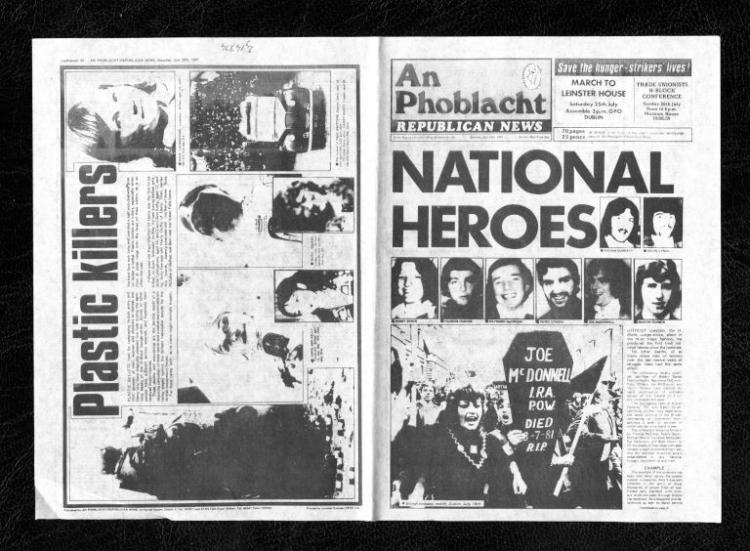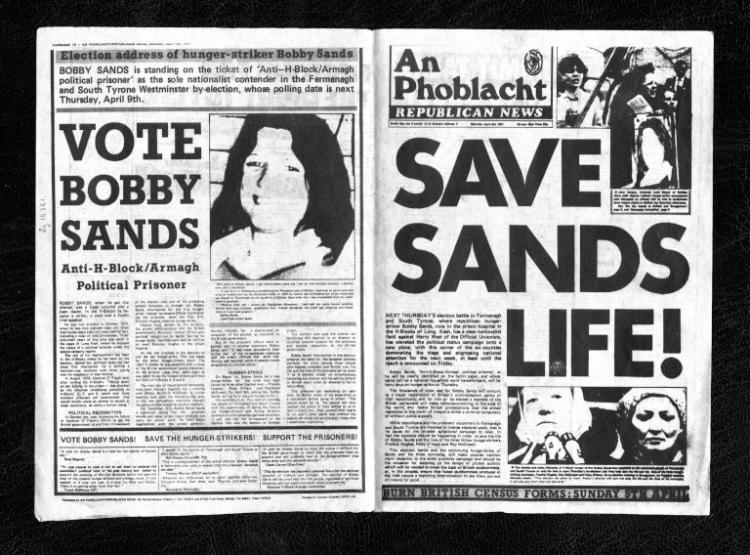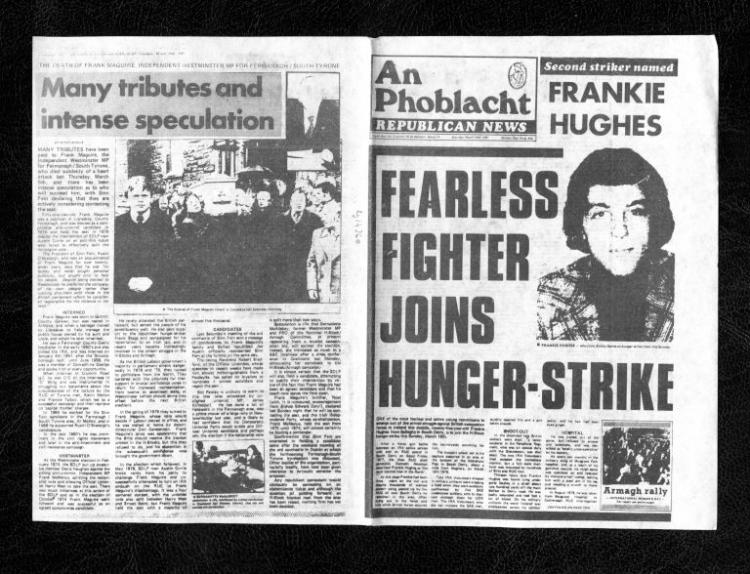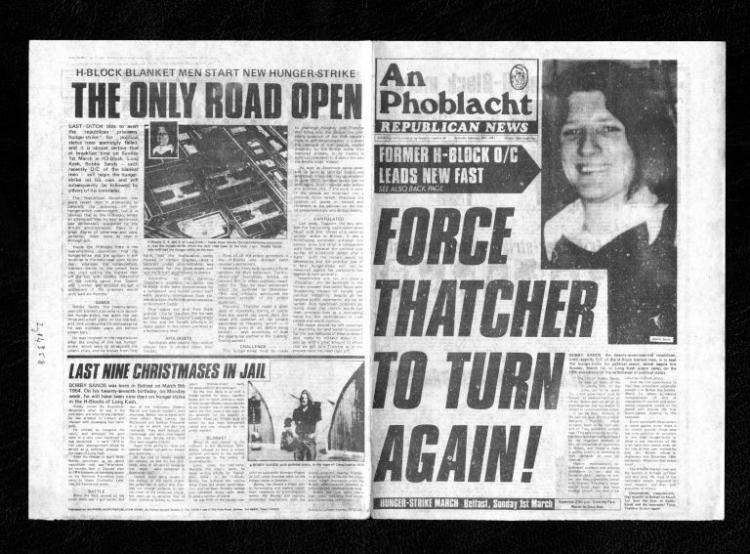
Hunger Strikes
Back to 1980sNow, republican prisoners appeared in the unwanted role of being prepared to accept suffering for their cause rather than simply inflicting suffering on its behalf.
Bobby Sands, then leader of the Irish Republican Army (IRA) in the Maze Prison, refused food on 1 March 1981 and so began a new hunger strike. The choice of the date was significant because it marked the fifth anniversary of the ending of special category status (1 March 1976). The main aim of the new strike was to achieve the reintroduction of 'political' status for Republican prisoners.
Special category, or 'political', status would be achieved if five demands were met:
- the right of prisoners to wear their civilian clothes at all times;
- the right to free association within a block of cells;
- the right not to do prison work;
- the right to educational and recreational facilities;
- and the restoration of lost remission of sentence.
The strike was to last until 3 October 1981 and was to see 10 Republican prisoners starve themselves to death in support of their demands.
Irish Republican Socialist Party Poster
This poster was issued by the Irish Republican Socialist Party in Dublin in support of republican prisoners in the Maze Prison. It refers to ‘daily beatings, no visits, no letters' and calls for prisoners to be given political status.

Anti-Republican Poster
Directly criticising the prisoners’ actions, this poster was almost certainly produced in response to the hunger strike campaign by republican prisoners in 1981. Outside the prison a further 64 people died during the course of the campaign including 30 members of the security forces.

An Phoblacht Republican News
On the fifth anniversary of the ending of special category status, 1 March 1981, the Irish Republican Army leader in the Maze Prison, Bobby Sands, began a renewed hunger strike to regain special category status. An Phoblacht Republican News documented the events. During the course of the hunger strike ten prisoners died, beginning with Bobby Sands on 5 May and ending with Michael Devine on 20 August.
Bodhrán
This bodhrán featuring a portrait of Bobby Sands was made in H Block 3 of the Maze Prison by a republican prisoner from West Belfast. ‘12 years’ is incorporated into the design to indicate the length of sentence. The four crests surrounding the portrait represent the four provinces of Ireland.
BELUM.W2010.1.7







